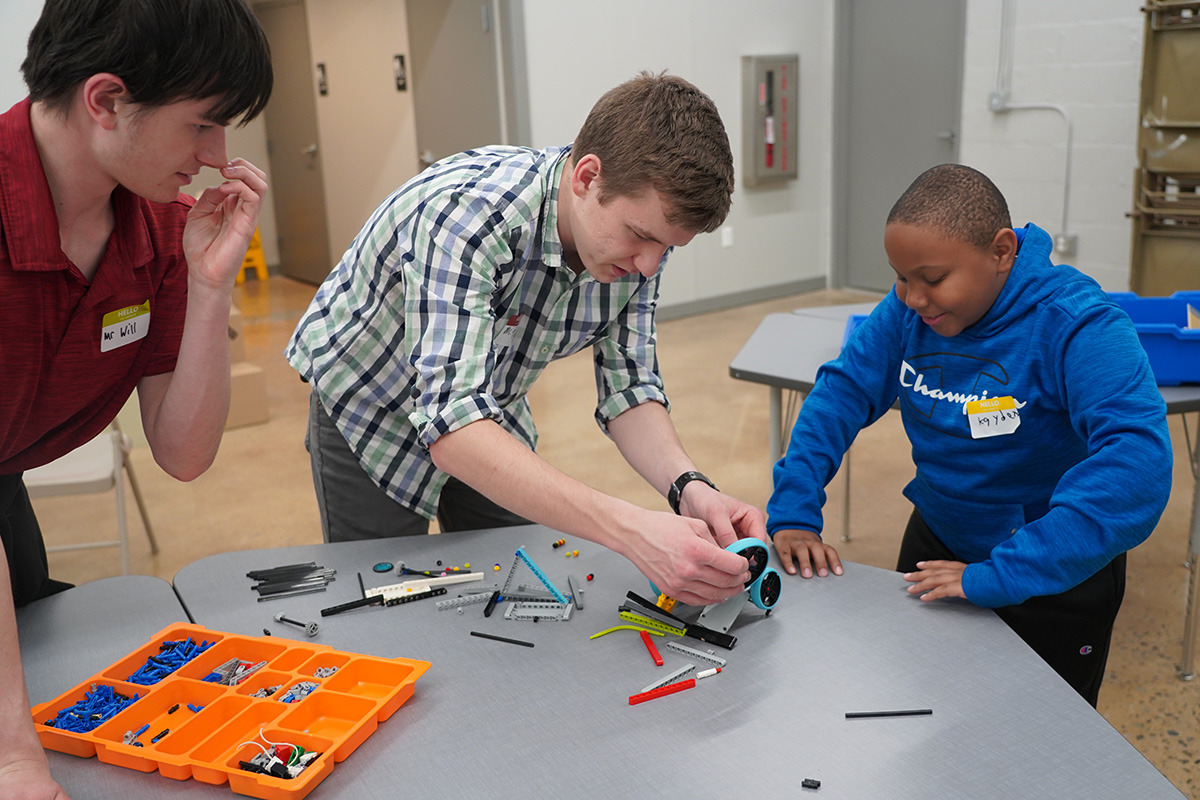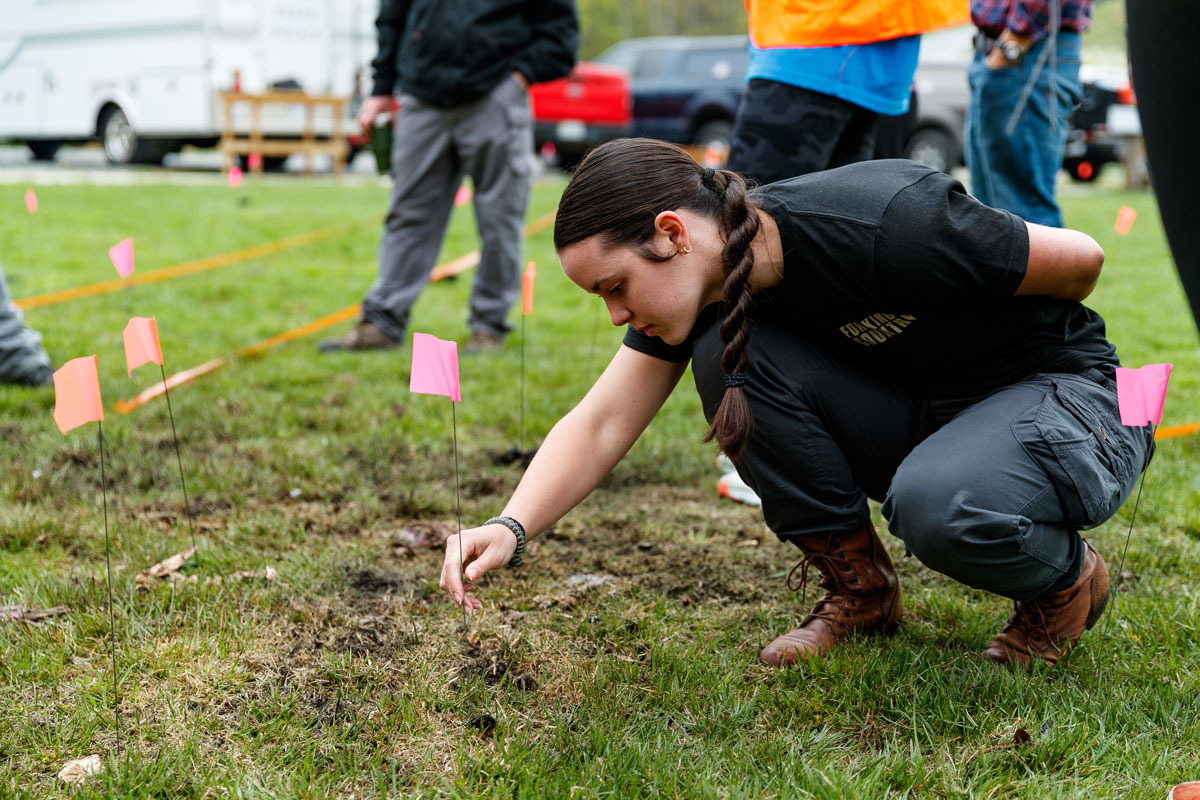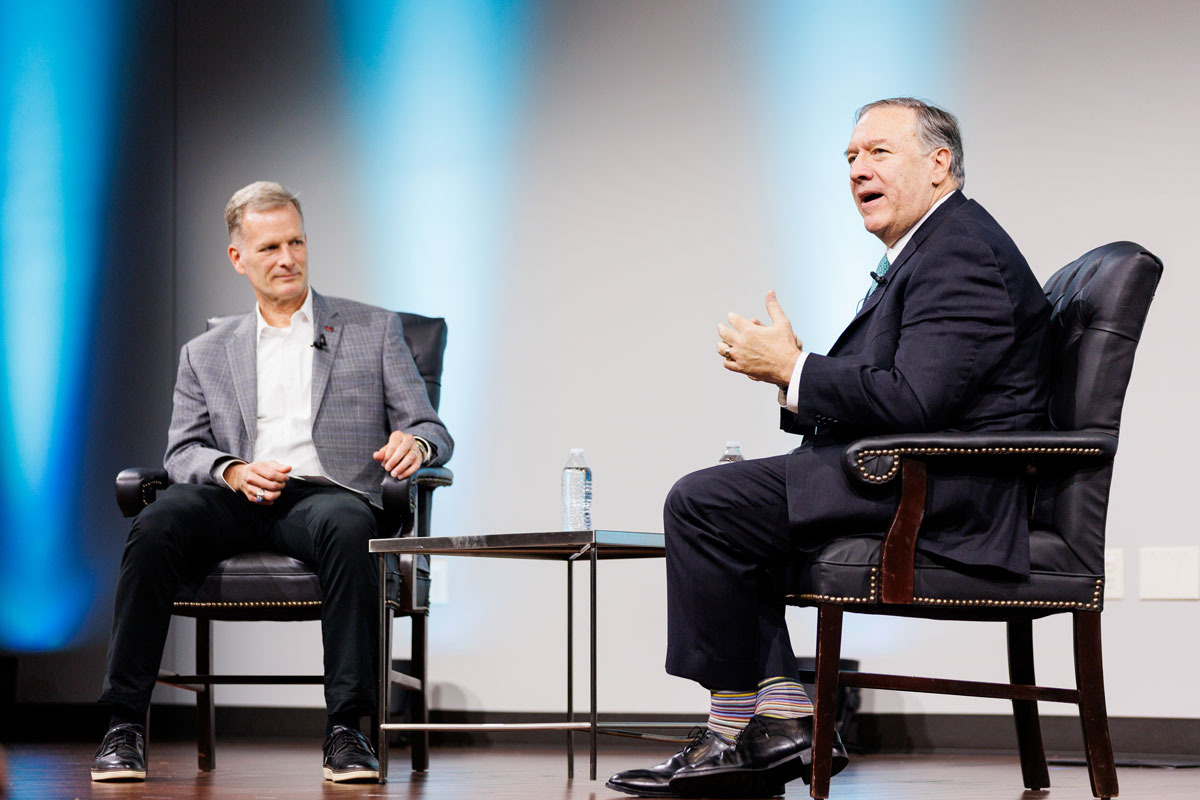Search News Archives
Filter News Articles
Additional Navigation
Robotics research project recognized as finalist in Artificial Intelligence competition
June 16, 2021 : By Ted Allen - Office of Communications & Public Engagement
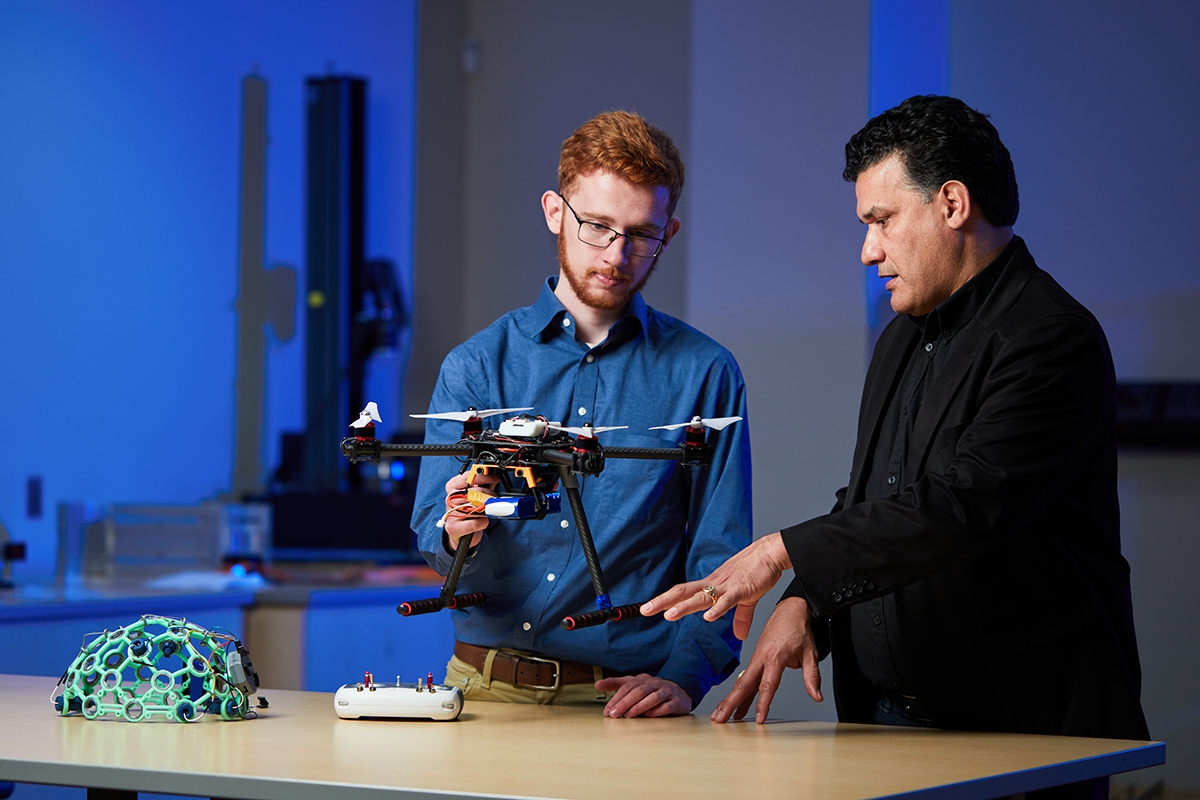
Inspired innovation in robotics design has fueled Liberty University mechanical engineering students’ work throughout the 2020-21 school year, and their advancements have received recognition in prestigious competitions.
A drone-based project from the School of Engineering’s TRACER (Translational Robotics and Controls Engineering Research) lab received a Phase 1 Finalist prize in the OpenCV AI competition. The proposal involved an agricultural monitoring system that uses computer vision and machine learning to help farmers increase their crop yields.
Sponsored by Microsoft Azure and Intel, the contest is the world’s largest spatial Artificial Intelligence (AI) competition focused on solving real-world problems. Out of more than 1,400 entries from around the world, Liberty’s team, nicknamed Flaming AI, was one of only 250 selected as finalists. Liberty was one of only 12 universities in the U.S. to be selected.
“It goes beyond having a drone with an advanced camera,” said mechanical engineering professor Dr. Hector Medina, who directs TRACER lab with undergraduate engineering, math, and computer science students. “It is actually a web-based solution that could help farmers be informed in real-time about the conditions of their crops and perhaps what to do about it and when to do it in time. Furthermore, we could implement a drone-based irrigation spray system so that not only would we inspect, but the drones would also actually spray the pesticides.”
Finalists received 10 kits with tools, including an advanced camera and machine-learning hardware valued at $3,000, for use in the second stage of the contest. After the team submits a report on the results from its prototype by July 11, judges will determine winners of first, second, and third place regional and international prizes, ranging up to $5,000 for regional entries.
Medina’s team is exploring the idea of early-detection testing of its prototype at a local farm and to eventually incorporate it in a more mission-related project in poorer countries where implementations are less regulated and more desperately needed.
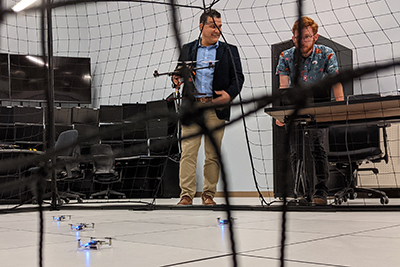
“We have already sent a letter of intent to the National Institute of Food and Agriculture,” Medina said. “We have partners already in Peru willing to work with us … to open doors with a network of small-scale producers in a particular location. If the funding becomes available, we could go down there and actually use this to collect data on trees with actual diseases, pests, and weeds.”
He said web-based apps could be developed to allow a community of farmers with similar types of plantations, dealing with similar climates and conditions, to monitor their crops from their smartphones, especially in Third World countries.
The project also earned indirect recognition from the Virginia Section of the American Society of Mechanical Engineers (ASME). Isaac Liu, a member of the research team, tied for first place at the 2021 ASME Virginia Section Old Guard Oral Presentation Competition, in which he presented on the technology involved in the project, including the use of autonomous vehicles, advanced computer vision, high-performance, cloud-based computing, and machine learning (a form of artificial intelligence).
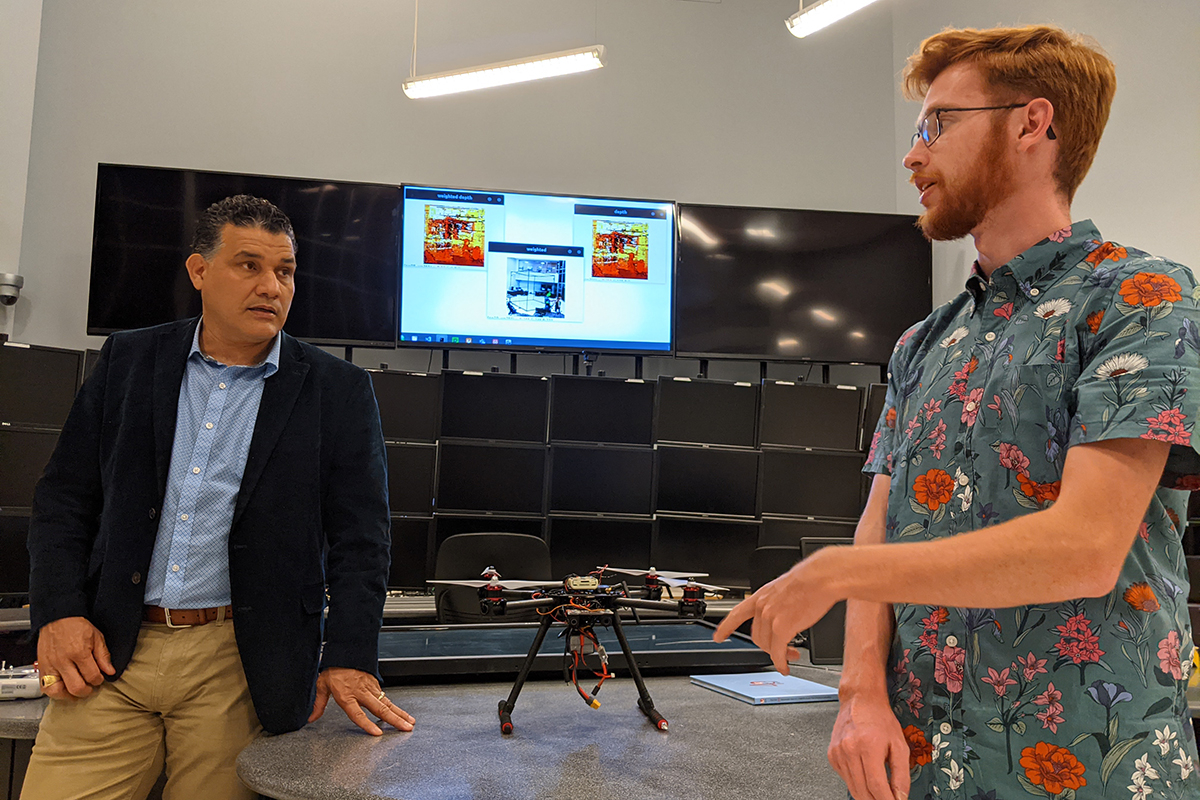
Besides Liu, graduating seniors Carson Farmer and Nathaniel Gentry as well as undergraduates Kolton Musgrove, Andres Choque, and Ezra Boerman have contributed to the research and development of the final prototype.
A second drone project from Liberty’s TRACER lab, engineered by Farmer and designed to assist with aerial imaging for COVID-19 social distance monitoring at sporting events and other outdoor gatherings, was awarded a bonus prize in the NXP HoverGames2 contest.
“Besides the potential application of contributing toward advancing farming practices in Third World countries, I am excited about the opportunities that our students are getting in areas that involve advanced technologies such as drones and machine learning,” said Dr. Medina, who thanked Liberty’s Center for Research and Scholarship and the Office of the Provost for their support of TRACER lab and its various projects.
